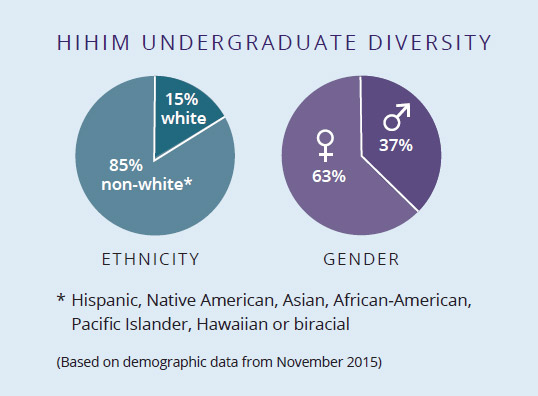When she was a child, Mahlet Takele wanted to be a doctor or scientist. She collected a variety of leaves and roots from her neighborhood, which she imagined were possible cures for HIV/AIDS.

Growing up in Ethiopia, Takele saw firsthand the challenges people faced in accessing quality health care. “People were dying because their needs were unmet by broken health systems limited by a lack of resources and overburdened staff,” says Takele, from Bahir-Dar, a city with one of the highest rates of HIV/AIDS in the early 2000s.
Ethiopia also struggled with high maternal and child mortality rates. “My grandmother was pregnant 14 times, but lost two babies at birth and two soon after birth,” Takele says. “Mothers, newborns and children in developing countries are the world’s most vulnerable people, and I want to change that.”
A 2016 graduate of the University of Washington School of Public Health, Takele wants to strengthen health systems to address current and future public health challenges. She plans to use the leadership skills gained by studying for her BS in Health Informatics and Health Information Management (HIHIM), a unique and experiential undergraduate program within the School’s Department of Health Services.

Health informatics is the “science that defines how health information is technically captured, transmitted and utilized,” while health information management is the practice of organizing and protecting digital and traditional health information vital to providing quality patient care, according to the American Health Information Management Association.
“We are seeing more, and more rapid, transformation in the health care industry than we have in the past 20 years,” says Jeffrey Harris, professor and chair of the School’s Department of Health Services. “There is increased emphasis on improving quality of care and population health while lowering costs.”
This transformation is dependent on information technology and is fueling job growth in health informatics and health information management, Harris notes. The rising demand for professionals in this field can be attributed to Affordable Care Act mandates, which require health care providers to implement electronic health records and other technology solutions designed to improve patient care.
“The need for health informatics and health information management professionals is predicted to be strong through 2022, with job projections ranging from 15 to 22 percent,” says Kathleen Peterson, senior lecturer and HIHIM program director. “This is much faster than the average growth in jobs.”

HIHIM has a diverse student population in ethnicity, gender and age. Eighty-five percent of students are non-white, while the number of international students has doubled in the last two years. About 63 percent of students are female and 37 percent are male. Non-white students include those who identify as Hispanic, Native American, Asian, African-American, Pacific Islander or Hawaiian or biracial.
“I attribute the diverse student population to the job outlook for a professional career in the health care industry, as well as the global need for professionals trained in health informatics and information management,” Peterson says.
Graduates of HIHIM are qualified to work in a variety of in-demand roles, including health information managers, data analysts, electronic health record implementation specialists and privacy specialists. The HIHIM program was launched at the UW in 2001, but was originally established in the 1960s at Seattle University. More than 230 students graduated between 2008 and 2015, according to Peterson.
The School also offers a Master’s in HIHIM, where students can deepen their expertise. And it partners with UW’s Professional & Continuing Education to provide a certificate program designed for professionals who have a Bachelor’s degree and are interested in a career change.

“My husband and I spent the last 20 years raising three children, but now we’re transitioning to life without soccer tournaments, mock trial competitions and golf matches,” says Adele Kroeger, an HIHIM certificate student. “As a returning student, I love the stimulation that going back to school has brought to my life.”
Kroeger explains there are many ways to turn health care data into valuable information about patient outcomes and population health.
She has a bachelor’s degree in Business Administration from Washington State University and an MBA from the UW. She has worked for Boeing, IBM, AT&T and Sprint, in systems analysis and marketing. She also spent a few years as a stay-at-home mom.
Kroeger plans to use her business experience, analytical skills and marketing background to help health care organizations tailor offerings to meet the needs of their customers. “I love to promote a cause I believe in and I'm sure that element will be part of my next career position,” she says.
Takele shares the same conviction and is committed to eliminating health disparities for poor and disadvantaged populations globally. She plans to continue her education in hospital administration or international health, and dreams of running an NGO to set up health clinics in countries such as Ethiopia. The clinics would provide mothers with safe places to give birth and families with quality health care.
“I want everyone to understand that health care is a human right,” Takele says. “Your race, income and where you’re from should not impact the quality of care you receive.”
(By Ashlie Chandler)
